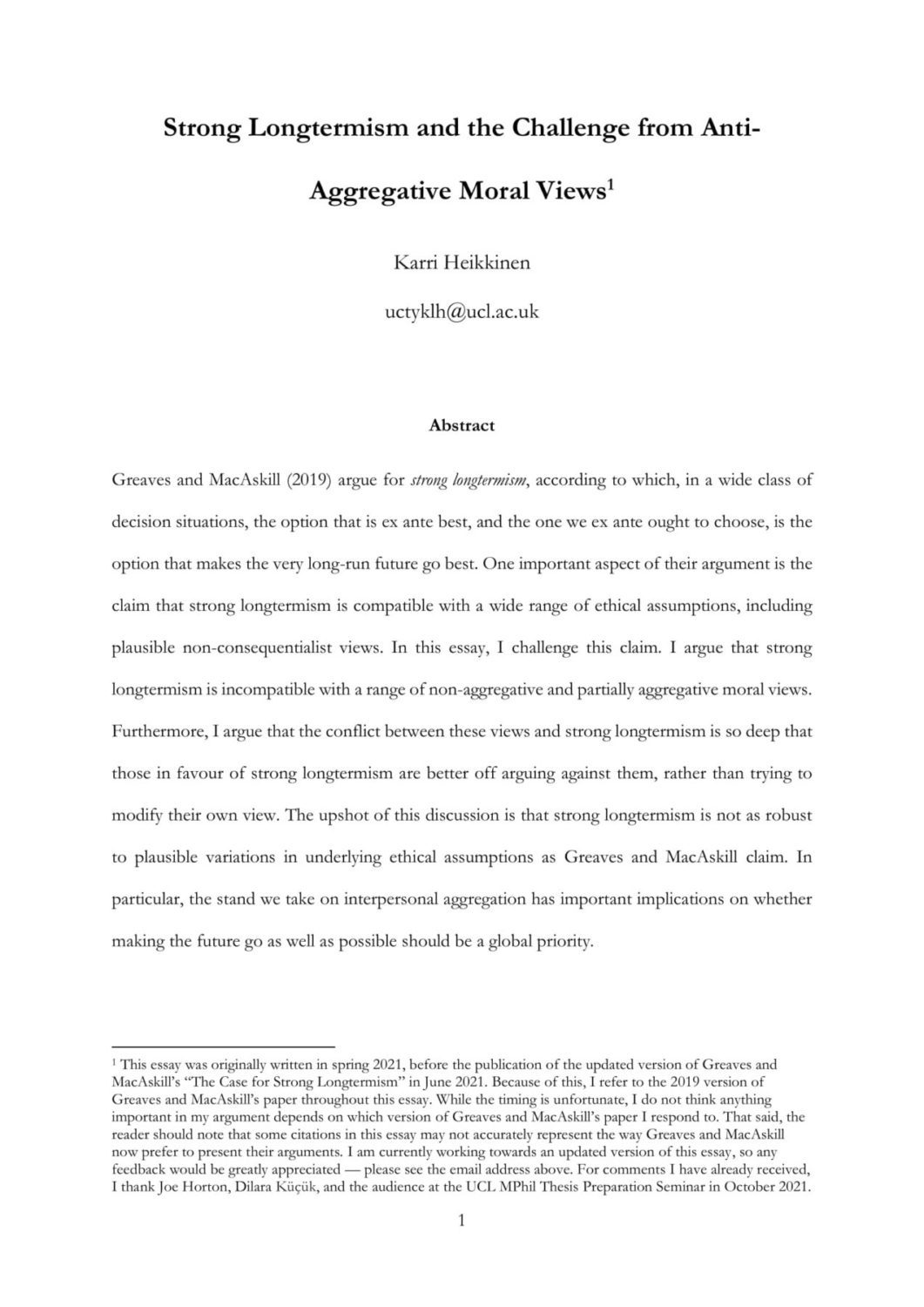Strong longtermism and the challenge from anti-aggregative moral views
Karri Heikkinen (University College London)
GPI Working Paper No. 5 - 2022
Greaves and MacAskill (2019) argue for strong longtermism, according to which, in a wide class of decision situations, the option that is ex ante best, and the one we ex ante ought to choose, is the option that makes the very long-run future go best. One important aspect of their argument is the claim that strong longtermism is compatible with a wide range of ethical assumptions, including plausible non-consequentialist views. In this essay, I challenge this claim. I argue that strong longtermism is incompatible with a range of non-aggregative and partially aggregative moral views. Furthermore, I argue that the conflict between these views and strong longtermism is so deep that those in favour of strong longtermism are better off arguing against them, rather than trying to modify their own view. The upshot of this discussion is that strong longtermism is not as robust to plausible variations in underlying ethical assumptions as Greaves and MacAskill claim. In particular, the stand we take on interpersonal aggregation has important implications on whether making the future go as well as possible should be a global priority.
Other working papers
Intergenerational equity under catastrophic climate change – Aurélie Méjean (CNRS, Paris), Antonin Pottier (EHESS, CIRED, Paris), Stéphane Zuber (CNRS, Paris) and Marc Fleurbaey (CNRS, Paris School of Economics)
Climate change raises the issue of intergenerational equity. As climate change threatens irreversible and dangerous impacts, possibly leading to extinction, the most relevant trade-off may not be between present and future consumption, but between present consumption and the mere existence of future generations. To investigate this trade-off, we build an integrated assessment model that explicitly accounts for the risk of extinction of future generations…
Can an evidentialist be risk-averse? – Hayden Wilkinson (Global Priorities Institute, University of Oxford)
Two key questions of normative decision theory are: 1) whether the probabilities relevant to decision theory are evidential or causal; and 2) whether agents should be risk-neutral, and so maximise the expected value of the outcome, or instead risk-averse (or otherwise sensitive to risk). These questions are typically thought to be independent – that our answer to one bears little on our answer to the other. …
AI alignment vs AI ethical treatment: Ten challenges – Adam Bradley (Lingnan University) and Bradford Saad (Global Priorities Institute, University of Oxford)
A morally acceptable course of AI development should avoid two dangers: creating unaligned AI systems that pose a threat to humanity and mistreating AI systems that merit moral consideration in their own right. This paper argues these two dangers interact and that if we create AI systems that merit moral consideration, simultaneously avoiding both of these dangers would be extremely challenging. While our argument is straightforward and supported by a wide range of pretheoretical moral judgments, it has far-reaching…

